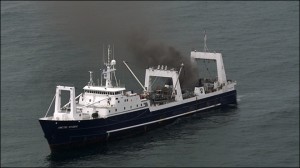If you work on a tug, you may be entitled to maintenance and cure in the event that you are injured or become ill while at work or if an injury or illness is aggravated during your service of the tug. Maintenance is a per diem living allowance for food and lodging comparable to what the seaman is entitled to while at sea and is set by the collective bargaining agreement between your employer and the Inlandboatmen’s Union of the Pacific (IBU). Medical cure is the payment of medical expenses incurred in treating the tug worker’s injury or illness. Your employer’s duty to pay maintenance and cure continues until the tug employee reached the point of maximum medical cure from the injury or illness, the condition permanently stabilizes, or cannot be improved any further with medical treatment.
The maritime law imposes a broad standard of coverage for tug employees who are injured or become sick while at work. Any doubts whether or not coverage should apply are resolved in favor of the tug worker. In order to show entitlement to coverage, a tug employee needs to only show: (1) that they are employed on a tug or other vessel; (2) their injury occurred, manifested, or were aggravated while in the service of the tug or vessel; (3) the amount to which they are entitled under the collective bargaining agreement; and (4) the amount of any expenditures for medicines, medical treatment, board, and lodging. The only narrow exceptions to maintenance and cure is in cases of (1) willful concealment of a disabling condition or misrepresentation of a medical condition at the time of initial employment; (2) willful misconduct, including fighting or gross inebriation; or (3) willful disobedience of a lawful order.
Once your tug employer begins paying maintenance and cure, it cannot stop paying these benefits unless the medical evidence establishing that the tug worker has reached maximum medical cure is unequivocal. See, e.g., Dean v. Fishing Company of Alaska, 2013 Wash. LEXIS 412 (Wa. Sup. Ct. May 9, 2013). This means there must be no medical evidence from a physician in support of the tug worker’s position that further medical treatment will benefit the seaman’s medical condition. If the doctors from the company and the treating doctor are at odds over whether maximum medical cure has been reached, your tug employer may not terminate maintenance and cure.
 The Coast Guard dispatched two MH-60 Jayhawk helicopter crews from Air Station Astoria and three 47-foot motor lifeboat crews to the scene. The Coast Guard also notified other ships in the area of the emergency via an Urgent Marine Information Broadcast.
The Coast Guard dispatched two MH-60 Jayhawk helicopter crews from Air Station Astoria and three 47-foot motor lifeboat crews to the scene. The Coast Guard also notified other ships in the area of the emergency via an Urgent Marine Information Broadcast. Seattle Maritime Injury Lawyer Blog
Seattle Maritime Injury Lawyer Blog

